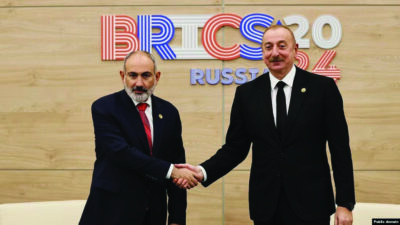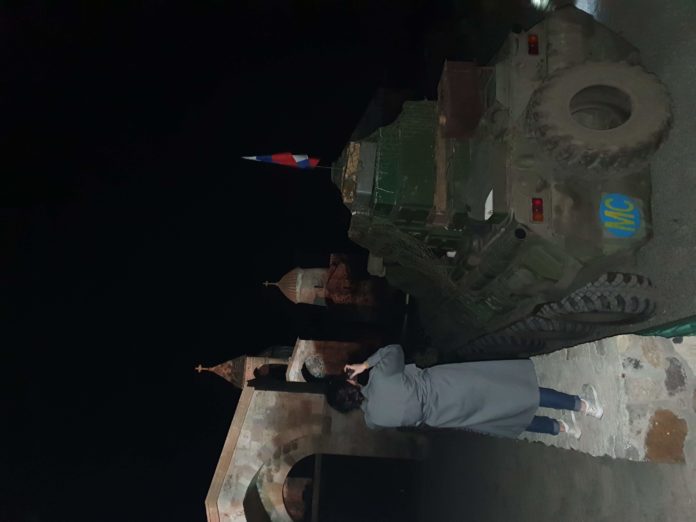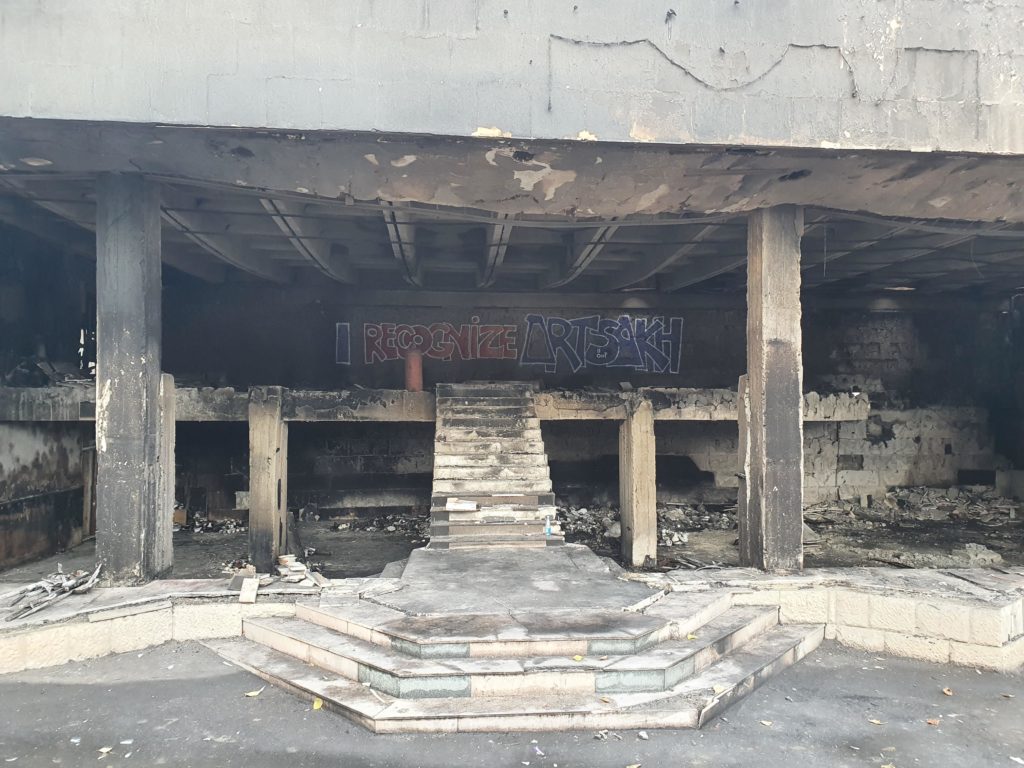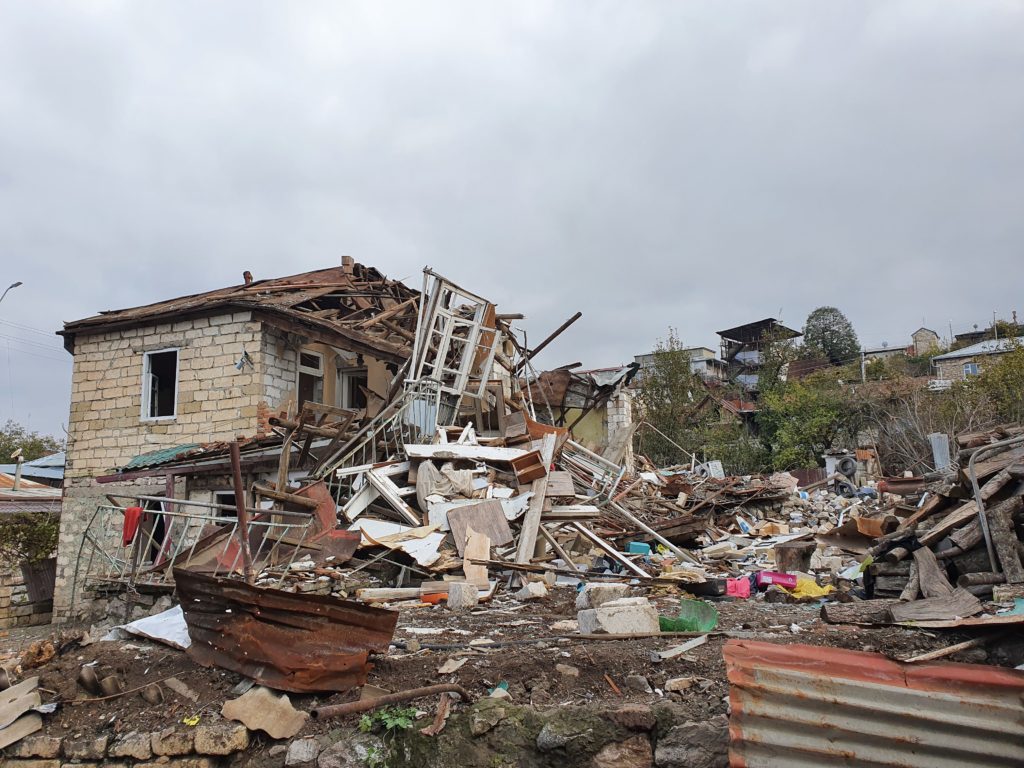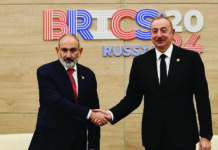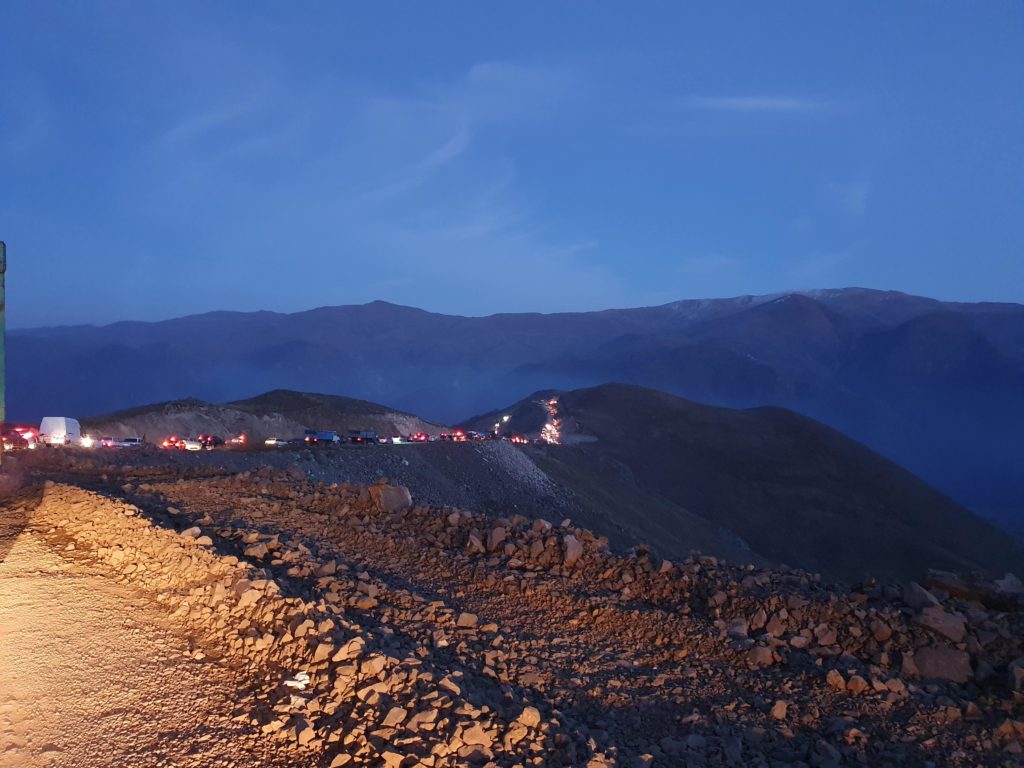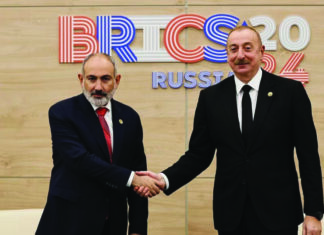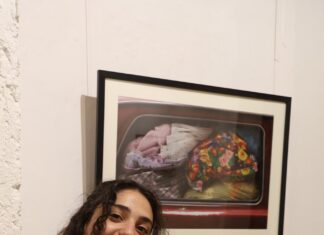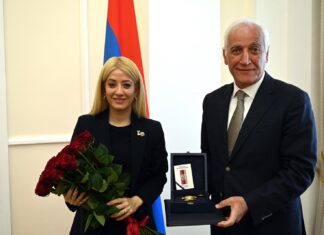YEREVAN — November 10, 2020. I woke up early as usual, when the hazy autumn sky still blended with the dark-blue hues of the night, and I barely realized that I was awake. This time, I did not do my usual dance in my head with the alarm clock’s song because my mother’s and grandmother’s conversation had replaced that melody. The vague word combinations I heard that morning in my half-asleep fog made me wonder whether I was still sleeping, or whether my life indeed had changed at that very moment.
“It was all useless, preplanned,” my grandmother said in a voice dripping with tears, sharing the mental state of my mother, who had accidentally spoken too loudly. “It’s unreal,” she said. “I can’t believe we handed Shushi to the Turks.”
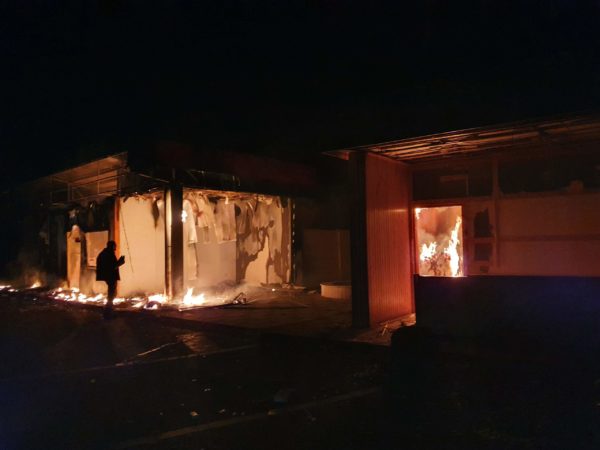
These vague whispers became the first forewarning that I had entered a new chapter of life, where I’m forever deprived of the feeling of genuine happiness. However, I was really happy to hear that the war was over, and I could return to my house in Stepanakert, naively believing that my cat was slumbering in front of our enormous entrance door, expecting to finally hear my footsteps.
Throughout the war, I had poured my thoughts onto the pages of my diary, as it seemed to be the only thing that could bear the burden of my broken heart. On November 10, my body and mind got so listless that I was unable to do anything other than endlessly shed tears while scrolling through old photos on my phone, losing track of my thoughts.
Statements like “Everything was sold” or “Putin decides our destiny” were circulating everywhere, especially inside the “cage” where my family didn’t stop chattering and crying, aggravating my condition.
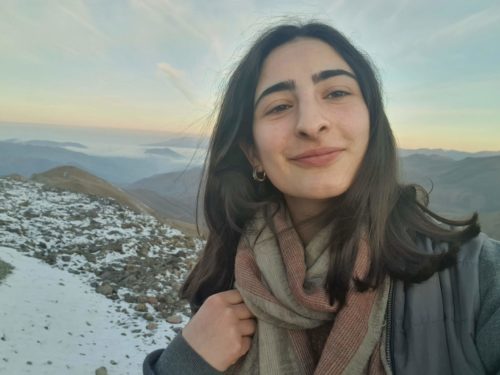
I had made a clay model of our house long ago, which I had started embellishing, adding a magnolia tree made from a fresh leaf, the vibrant oleanders from an herbarium and the gates from painted matchsticks. The risk that my wonderful house could be utterly demolished by one rocket kept me in a state of agitation. I acknowledged during those days that no matter where I live, my soul is tied to Stepanakert through my memories; to lose it forever would horrify me.
